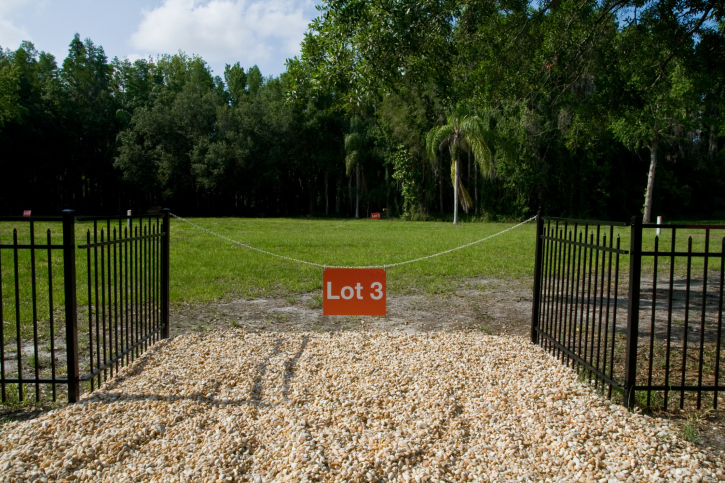Buyer Beware: Three Major Red Flags to Watch for When Visiting Open Houses
 An open house is a good opportunity to get out and about to see what kind of home you’re looking for and if it will work for you. Fortunately, they can also be a good opportunity to find out some things about the house you’re looking at that might not be listed on the website and may be less than flattering. If you’re wondering what red flags to watch out for, pay attention to the following things the next time you’re at a showing.
An open house is a good opportunity to get out and about to see what kind of home you’re looking for and if it will work for you. Fortunately, they can also be a good opportunity to find out some things about the house you’re looking at that might not be listed on the website and may be less than flattering. If you’re wondering what red flags to watch out for, pay attention to the following things the next time you’re at a showing.
Strong Odors
Many home sellers try to engage the senses in order to entice buyers by baking cookies or spraying air freshener. However, a lot of air freshener or scent can also be a means of hiding less than pleasant smells that are a giveaway for big problems. If you notice a lot of scents when visiting an open house or if there’s an odor, you may want to look for mildew or mold as this can mean a huge house-owning hurdle to deal with down the road.
An Abundance Of Fix-Up
A small maintenance issue here and there may not be a big deal, whether it’s a doorknob that doesn’t catch or peeling paint on the wall. Unfortunately, an abundance of small issues can signal a certain attitude towards general maintenance that should be approached with caution. While it may just be a few details that were forgotten about, it’s important to pay attention as there may be a lot of more important maintenance issues that are not being taken care of if the minor ones are visible.
Issues With the Foundation
There are many issues that will hopefully come to the forefront at the home inspection, but it’s not worth it to get invested in a home only to back out due to a failing foundation. Instead of leaving it up to the due diligence of the home inspector, check for large gaps in the home’s foundation to unveil any issues on this front. The foundation can be a huge issue if it requires a fix-up, and it’s one you probably won’t want to deal with in your new home.
Open houses can provide a great sense of what it’s like to live in a home, but they can also be a good opportunity to take note of any major issues with a future home. If you’re currently preparing to buy a home, contact your trusted mortgage professional for more information.

 When investing in a home, one of the most important things is buying a place that you and your family can feel comfortable in. However, while a place you can envision yourself in is important, it’s not worth neglecting the neighborhood you’ll be moving into for the perfect home. If you’re wondering what you should be looking for in the neighborhood you choose, here are a few things to consider before making an offer on a home.
When investing in a home, one of the most important things is buying a place that you and your family can feel comfortable in. However, while a place you can envision yourself in is important, it’s not worth neglecting the neighborhood you’ll be moving into for the perfect home. If you’re wondering what you should be looking for in the neighborhood you choose, here are a few things to consider before making an offer on a home. Most people peruse the real estate market for a while before they bite down and decide to invest in a home. However, whether you’re in a rush or you think you’ve found the ideal place, it’s possible you may be ready to put in an offer on the first visit. If you’re trying to determine how you can get the home you’re looking for the first time around, here are a few things to be aware of when going in.
Most people peruse the real estate market for a while before they bite down and decide to invest in a home. However, whether you’re in a rush or you think you’ve found the ideal place, it’s possible you may be ready to put in an offer on the first visit. If you’re trying to determine how you can get the home you’re looking for the first time around, here are a few things to be aware of when going in. Relocating to a new area can be exciting, but it can also be expensive. There are many resources to help, but most cost money. However, if you take your time and plan carefully, you can reduce the expense so you don’t start your new life with new debt. Here are three tips to controlling your moving budget.
Relocating to a new area can be exciting, but it can also be expensive. There are many resources to help, but most cost money. However, if you take your time and plan carefully, you can reduce the expense so you don’t start your new life with new debt. Here are three tips to controlling your moving budget. When many people think about investing in property, they think about purchasing income-producing real estate such as a residential property or an office building with tenants. There are indeed many benefits associated with investing in income-producing property. For example, these properties may produce rent that can offset your ownership expenses. However, buying raw land can also be an excellent long-term investment strategy.
When many people think about investing in property, they think about purchasing income-producing real estate such as a residential property or an office building with tenants. There are indeed many benefits associated with investing in income-producing property. For example, these properties may produce rent that can offset your ownership expenses. However, buying raw land can also be an excellent long-term investment strategy.